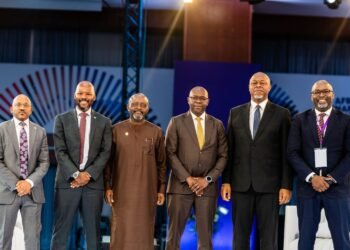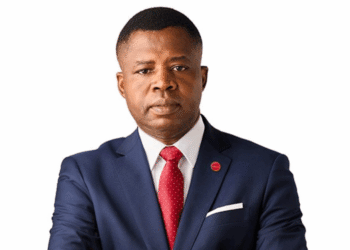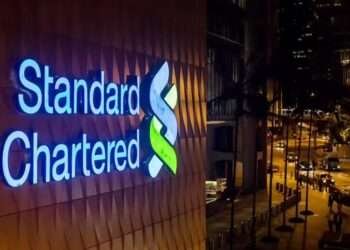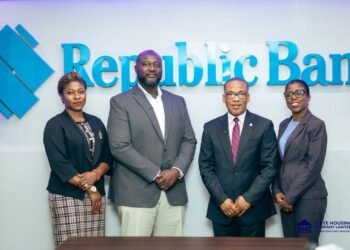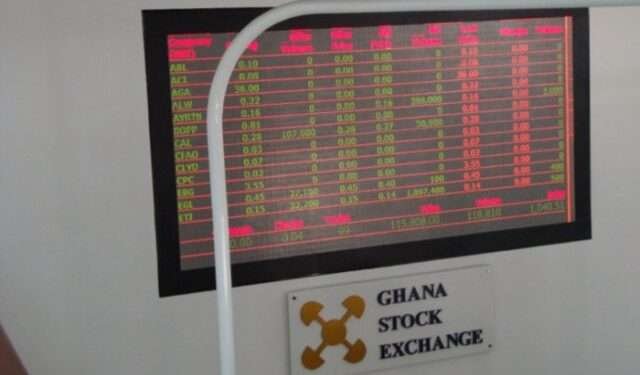Fidelity Bank Ghana has once again reinforced its leadership in sustainable banking with the launch of three groundbreaking webinars under the theme “Aligning Finance with Climate Action.”
The series, part of the bank’s annual Sustainability Month initiative, Orange Goes Green, drew immense participation from customers, staff, and strategic partners, setting the stage for deeper dialogue on climate-smart finance ahead of the bank’s much-anticipated August 27th conference.
These sessions brought together experts from across the climate, energy, and finance sectors to examine how financial strategies can be aligned with urgent climate realities. The webinars also reflected Fidelity Bank’s growing influence as a catalyst for sustainable transformation in Ghana’s financial landscape.
The first session featured Efua Nyamekye Appiah, a respected voice in energy and just transition. Speaking on the topic “Just Energy Transition: Who Wins and Who Loses,” she unpacked the complexities of moving from fossil fuels to renewable energy.
Appiah highlighted the immense opportunities in the transition, including the potential creation of millions of new green jobs, improved public health through reduced emissions, and expanded access to clean, affordable energy for underserved communities. However, she also cautioned that the shift comes with risks—job losses in traditional energy industries and possible higher energy costs for vulnerable populations.
“Achieving a just energy transition requires coordinated efforts, thoughtful policies, and a deep commitment to equity and sustainability,” she stressed. Her message underscored the importance of designing inclusive strategies that leave no one behind in Ghana’s energy transformation.
Preparing for Today’s Reality
The second webinar was led by Gerhard Muda, CEO of Climate Risk Services and a globally experienced climate finance expert. Muda’s presentation, “Climate Proofing Portfolios,” resonated deeply with participants, as he warned that climate change is no longer a future concern but a present crisis already disrupting economies.
“Emerging markets like Ghana face a climate finance gap of $350–400 billion annually. Banks have a unique role to play in mobilising this capital, building resilience for businesses, and generating new streams of green revenue.”
Gerhard Muda
He pointed to Ghana’s vulnerability to climate shocks—ranging from droughts to extreme rainfall—that threaten agriculture and food security. Practical adaptation strategies, such as drip irrigation systems, protective hail nets, and climate risk assessments in lending decisions, were highlighted as urgent interventions. Fidelity Bank has already begun integrating such assessments into its loan approval processes for farmers, demonstrating real-time application of these solutions.
Net Zero and the Business Case for Sustainability
The third session, “Net Zero Concepts and Business Implications,” was delivered by John Tawiah, Africa Lead for Sustainable Finance Advisory at KPMG Africa. Tawiah introduced participants to the “triple bottom line” concept, urging businesses to balance financial profit with environmental and social responsibility.
He broke down greenhouse gas emissions into Scope 1, 2, and 3 categories, calling for businesses to map and measure their emissions as the first step toward realistic climate action. Using case studies, Tawiah showed how African companies are adopting innovative strategies to cut emissions, while also adapting to industry-specific realities.
“The path to net zero must be context-specific, aligned with policy frameworks, and grounded in scalable solutions,” Tawiah noted, emphasizing the importance of Africa designing its own resilient transition models.
The insights from these webinars are serving as a strong foundation for Fidelity Bank’s global live-streamed conference on August 27th, which will convene top voices in finance and sustainability.
Two high-powered panel discussions are expected to headline the event. The first, moderated by Dr. Abena Nyarkoa Asomaning of Ghana EXIM Bank, will explore “The Current State of Sustainable Banking: Mobilising Private Sector Capital for Climate Action in Ghana.” The second, moderated by Mina Agyemang of UN Global Compact, will focus on “Climate Finance and the Real Economy.”
These conversations will provide practical roadmaps on how financial institutions can accelerate Ghana’s climate finance agenda, mobilise private sector capital, and channel investments into innovative, climate-smart solutions.
Fidelity Bank’s Orange Goes Green initiative has become more than a symbolic campaign—it represents a commitment to embedding sustainability at the core of Ghana’s financial ecosystem. By hosting these webinars and preparing for a global conference, the bank is not just raising awareness but equipping stakeholders with the knowledge and tools to integrate climate resilience into everyday business and financial planning.
As Ghana navigates the dual challenge of economic growth and environmental sustainability, Fidelity Bank is proving that finance can indeed be a powerful lever for climate action. With its proactive stance, the bank is not only sparking conversations but also leading a climate finance revolution that could shape the future of sustainable development across the country and beyond.
READ ALSO: IMF Delays Waiver Decision Amid Senegal Debt Scandal




